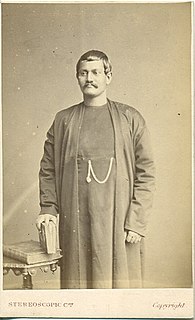A Quote by Francois de La Rochefoucauld
Praise is a more ingenious, concealed, and subtle kind of flattery, that satisfies both the giver and the receiver, though by verydifferent ways. The one accepts it as a reward due to his merit; the other gives it that he may be looked upon as a just and discerning person.
Related Quotes
We are not fond of praising, and never praise any one except from interested motives. Praise is a clever, concealed, and delicate flattery, which gratifies in different ways the giver and the receiver. The one takes it as a recompense of his merit, and the other bestows it to display his equity and discernment.
Young children are unlikely to have their self-esteem strengthened from excessive praise or flattery. On the contrary, it may raise some doubts in children; many children can see through flattery and may even dismiss an adult who heaps on praise as a poor source of support-one who is not very believable.
There are two different kinds of spectacular fighters. One is a subtle counter puncher who shows the work like chess. It's kind of an art, sports art. The other kind is when a guy has blood on all his body. That's a second kind of spectacular fighter, and people enjoy both. Both kind of fighters need to be respected.
A noble person confers no such gift as his whole confidence: none so exalts the giver and the receiver; it produces the truest gratitude. Perhaps it is only essential to friendship that some vital trust should have been reposed by the one in the other. I feel addressed and probed even to the remotest parts of my being when one nobly shows, even in trivial things, an implicit faith in me.... A threat or a curse may be forgotten, but this mild trust translates me.
The way in which a man accepts his fate and all the suffering it entails, the way in which he takes up his cross, gives him ample opportunity — even under the most difficult circumstances — to add a deeper meaning to his life. It may remain brave, dignified and unselfish. Or in the bitter fight for self preservation he may forget his human dignity and become no more than an animal


































